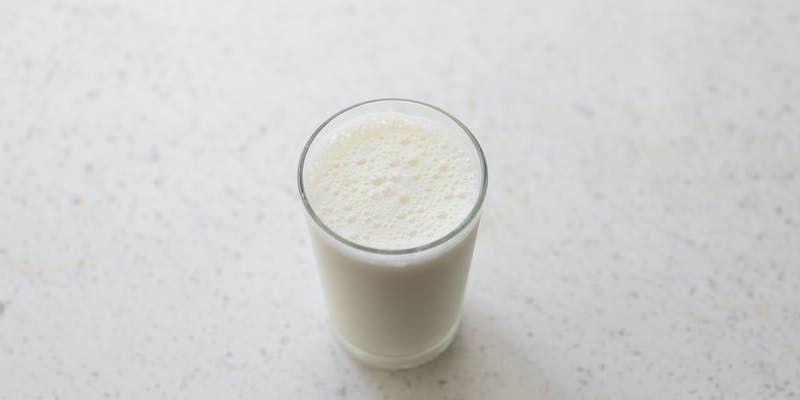Understanding Shoulder Acne: Why It Happens and How to Treat It
Dec 03, 2024 By Isabella Moss
Introduction
Many people deal with acne on their shoulders, which can be painful and annoying. As with other types of acne, shoulder acne is brought on by clogged pores, too much oil, and sometimes germs. Shoulder skin often gets acne because it has oil glands, sweats a lot, and often rubs against things like bags and clothes. This guide discusses what causes shoulder acne, how to treat it successfully, and useful ways to keep it from happening again.
Types of Acne on the Shoulders
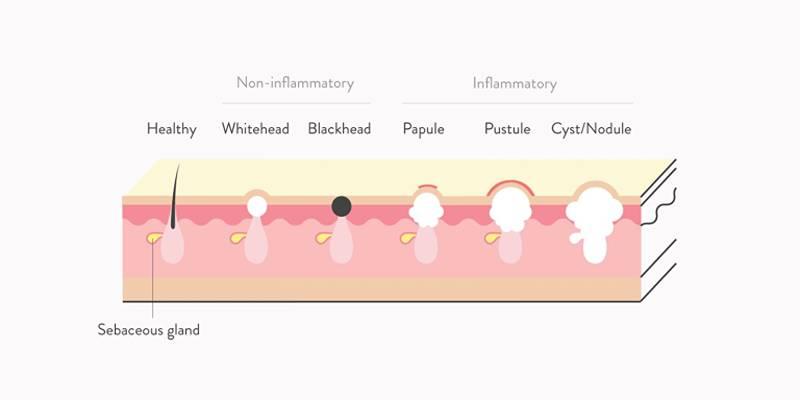
On the shoulders, a variety of acne types may develop. Each type has its characteristics and may require different treatment methods.
- Whiteheads and Blackheads: Blackheads are open pores packed with oil and dead skin cells that have darkened from oxidation, while whiteheads are tiny, closed lumps brought on by clogged pores. Both can appear on the shoulders due to excess oil and sweat.
- Papules and Pustules: Papules are small, red, inflamed bumps, and pimples are similar but contain pus. These types are often more painful and result from clogged pores and bacterial infections.
- Cystic Acne: Cystic acne is a severe form of acne that forms deep within the skin and can be painful. Its usually caused by blocked pores, bacteria, and inflammation.
Recognizing the type of acne on your shoulders can help determine the best treatment.
Causes of Shoulder Acne
Understanding the causes of shoulder acne can help manage and prevent it. Shoulder acne typically results from excess oil, dead skin cells, and bacteria. Here are some common reasons why acne may develop on the shoulders:
- Sweat and Physical Activity: Physical activity often leads to sweating, which can trap dirt and oil in the pores. Wearing tight or non-breathable clothing during exercise can trap sweat against the skin, leading to breakouts.
- Friction from Clothing or Bags: Constant friction from tight clothing or carrying heavy bags can irritate the skin on the shoulders. This irritation can lead to inflammation, making it easier for acne to form.
- Excess Sebum (Oil) Production: The shoulders have sebaceous (oil) glands that produce sebum.
- Hormonal Changes: Hormones can increase oil production, which may worsen acne. It is especially common during puberty, and periods of high stress.
Identifying these causes can help you make lifestyle changes to reduce shoulder acne and keep your skin clear.
Tips for Preventing Shoulder Acne
Prevention plays a key role in managing shoulder acne. You can reduce the likelihood of breakouts on the shoulders by making simple changes to your routine. Here are some practical tips:
- Wear Clean, Breathable Clothing: Opt for loose clothing that allows air to circulate. Avoid tight fabrics and choose materials that wick moisture away from the skin, reducing sweat buildup.
- Change and Wash Clothes Regularly: Sweaty clothing can trap oils and bacteria on the skin, leading to acne. Make it a habit to change and wash clothes after exercising or any activity that causes sweating.
- Avoid Heavy Bags on Shoulders: Carrying heavy bags can create pressure and friction on the shoulders, irritating the skin. Switch to lighter bags or carry items in a backpack with padded straps.
- Use Fragrance-Free Products: Fragrances in skin care products can irritate sensitive skin and worsen acne. Use fragrance-free and non-comedogenic products that are gentle on the skin and less likely to clog pores.
These preventive measures can significantly reduce acne on the shoulders and keep the skin clear.
When to See a Dermatologist?
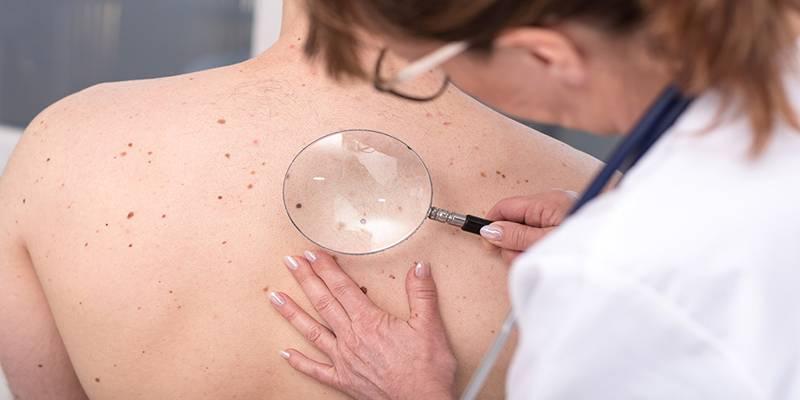
For many, shoulder acne can be managed with a consistent skincare routine and preventive habits. However, consulting a dermatologist may be beneficial if shoulder acne is severe, painful, or doesnt improve with home care. A dermatologist can recommend specialized treatments, such as prescription creams, oral medications, or other therapies tailored to your skin needs.
For persistent cystic or severe acne cases, dermatologists may suggest options like chemical peels or light therapy to reduce inflammation and scarring. Seeking professional advice can help you find the best solutions for long-term skin health.
How to Treat Shoulder Acne
Treating shoulder acne requires a consistent skincare routine and attention to factors like sweat and friction. Here are effective ways to manage and treat shoulder acne:
- Shower After Sweating: Showering immediately after physical activities helps wash away sweat, dirt, and oil, which can block pores. Use a gentle, non-comedogenic cleanser that doesnt clog pores to keep skin clean.
- Exfoliate Regularly: Exfoliating once or twice a week can help remove dead skin cells that clog pores. Choose a mild exfoliator to avoid irritation, as harsh scrubs can worsen shoulder acne.
- Use Salicylic Acid or Benzoyl Peroxide Products: Salicylic acid helps unclog pores and reduce inflammation, while benzoyl peroxide targets bacteria on the skin. These ingredients are often found in body washes and spot treatments for acne-prone skin.
- Apply Spot Treatments for Active Pimples: Spot treatments can help reduce the size and redness of active pimples. Products with benzoyl peroxide or salicylic acid effectively target specific acne spots.
- Wear Loose and Breathable Clothing: Tight or non-breathable clothing can trap sweat and oils, worsening shoulder acne. Choose loose, breathable fabrics like cotton that keep your skin cool and dry.
With consistency, these treatments can significantly improve shoulder acne and lead to clearer skin over time.
Dietary Tips for Clearer Skin
Although diet alone doesnt cause shoulder acne, certain foods can improve overall skin health. Making dietary adjustments may help improve skin condition:
- Limit Sugar and Processed Foods: High-sugar and processed foods may increase oil production and inflammation. Reducing sugary snacks and processed foods can support healthier skin.
- Stay Hydrated: Drinking enough water helps maintain skin hydration and supports the bodys natural detox processes. Staying hydrated also helps balance skin oil production.
A balanced diet and other preventive measures can support clearer skin and reduce shoulder acne.
Conclusion
Shoulder acne can be uncomfortable, but with the right approach, its manageable. By understanding the causes, practising good skincare habits, and making small adjustments in clothing and lifestyle, you can reduce shoulder acne and keep your skin clear. If at-home treatments arent enough, a dermatologist can offer additional options to help you achieve clearer, healthier skin on your shoulders.

How Can Better Ankle Flexibility Improve Strength and Stability?

Exploring the Health Benefits of Feta Cheese: Nutritional Guide
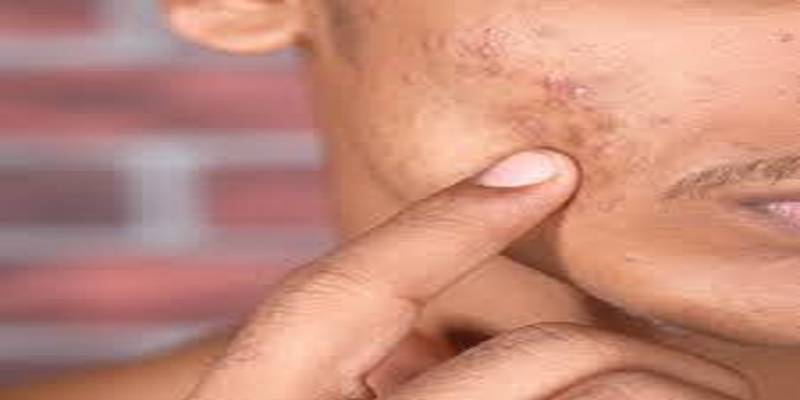
Top 15 Dermatologist-Recommended Products for Acne Scars

6 best stretching exercises for tight leg muscles
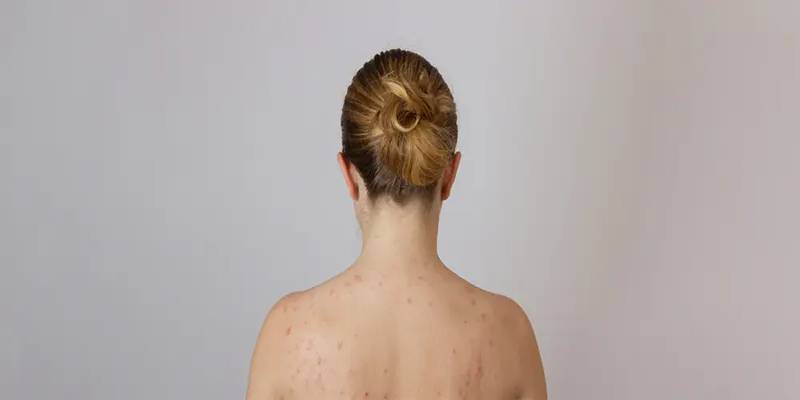
Understanding Shoulder Acne: Why It Happens and How to Treat It

Ready to Try Backbends? Start Here for a Safe and Energizing Practice

How Russian Twists Strengthen Your Core and Shoulders
